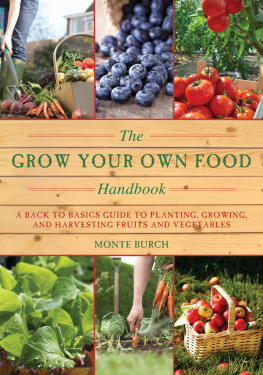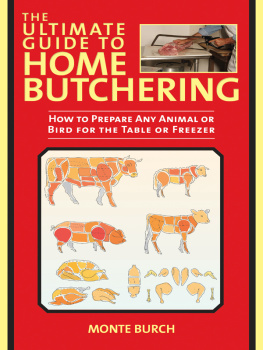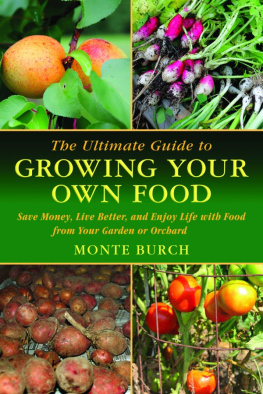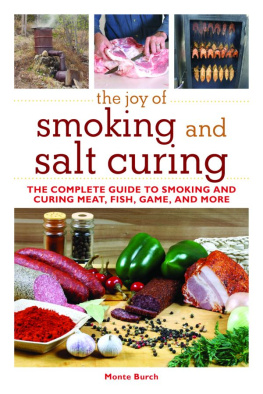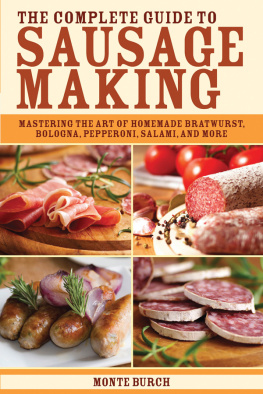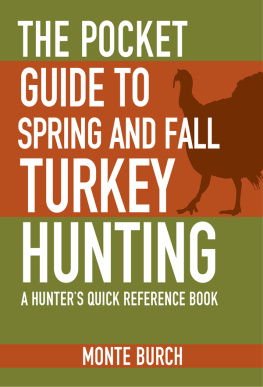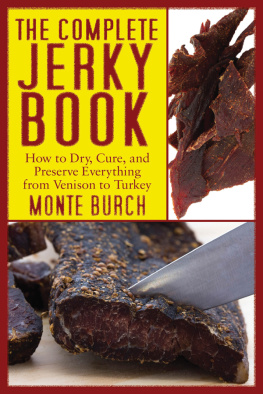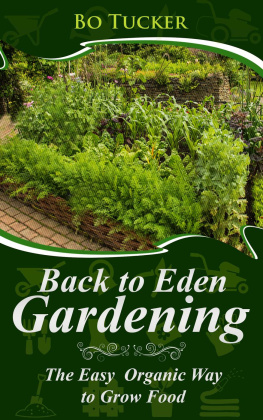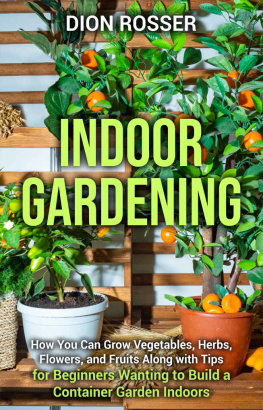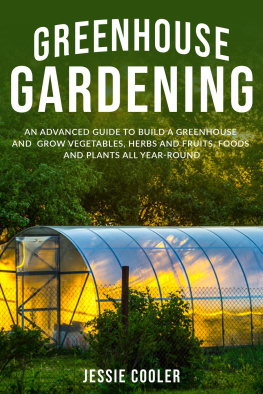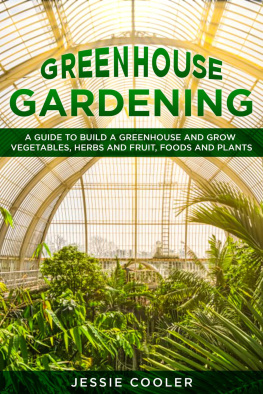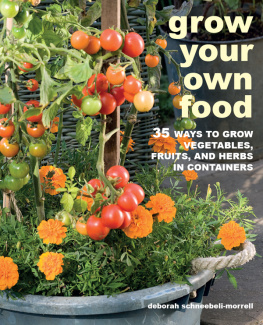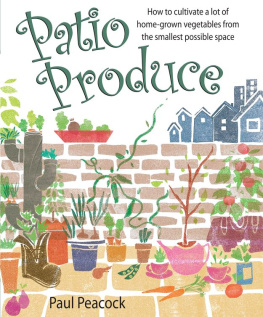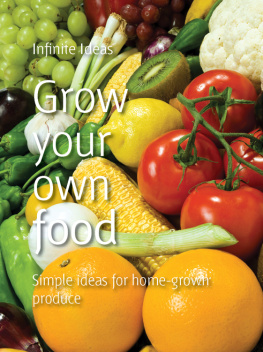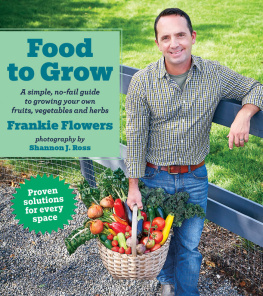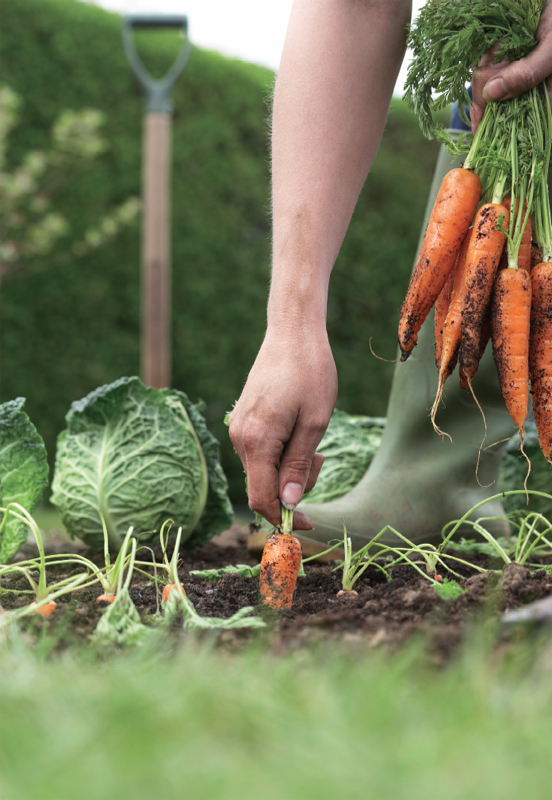
Copyright 2014 by Monte Burch
All Rights Reserved. No part of this book may be reproduced in any manner without the express written consent of the publisher, except in the case of brief excerpts in critical reviews or articles. All inquiries should be addressed to Skyhorse Publishing, 307 West 36th Street, 11th Floor, New York, NY 10018.
Skyhorse Publishing books may be purchased in bulk at special discounts for sales promotion, corporate gifts, fund-raising, or educational purposes. Special editions can also be created to specifications. For details, contact the Special Sales Department, Skyhorse Publishing, 307 West 36th Street, 11th Floor, New York, NY 10018 or .
Skyhorse and Skyhorse Publishing are registered trademarks of Skyhorse Publishing, Inc., a Delaware corporation.
www.skyhorsepublishing.com
10 9 8 7 6 5 4 3 2 1
Library of Congress Cataloging-in-Publication Data is available on file. ISBN: 978-1-62873-803-2
Printed in China
Contents
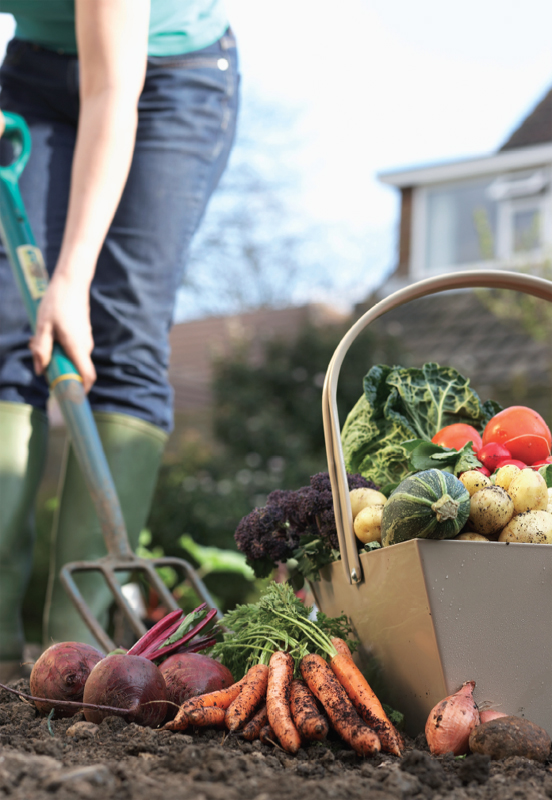
Why Grow Your Own Food

Growing your own food offers many benefits including a reduced use of our dwindling energy supplies as food is processed, packaged, and shipped all over the world.
Learning to grow food was a milestone in the development of the human race. As hunters and gatherers learned to cultivate food, they began to develop societies. Many of the Native Americans were expert food growers and taught the pilgrims to grow native foods such as corn, beans, and squash, thus sustaining the struggling settlements. A community food garden was the norm as these settlements grew. As the pioneers worked their way across the country, a food garden was a necessity for survival. In days past, every farm had a big garden, and even those in the cities with big backyards grew their own food. These days a much smaller number of people grow their own food, while most depend on the grocery-store shelves to provide their nutrition.
These days, with all of our purchased food, we expect foods not in season to be available year-round. We also enjoy the experience of tasting new foods that have never been available in our local areas. This convenience comes at a high cost. Transporting food from east to west and from north to south from one end of the country to the other and from one country to another is a major use of oil for fuel. Packaging foods to be shipped also utilizes a tremendous amount of energy, as well as oil for producing plastic and trees for paper. Other major factors, however, are the taste and texture of food. Much of the produce found on todays grocery-store shelves is bred to be picked green, not ripe, so it wont ripen before it hits the stores. This produces, in some instances, a tasteless, hard-textured food. Just compare the hot-house tomato to a juicy freshly picked tomato from the garden.
So why grow your own food? Granted, we cant all have huge gardens completely fulfilling our food needs. But there are several good reasons to grow what we can. First is the taste. You simply cant beat the taste of freshly picked sweet corn, brought in from the garden and directly to the table. The taste of homegrown tomatoes, ripe and bursting with juice, is heaven to a tomato lover. And how about fresh green beans with new potatoes, one of our familys favorite homegrown dishes. Even those with limited space can grow their own salad garden, with fresh lettuce, spinach, onions, and radishes. Peaches and apples, luscious blueberries, blackberries, and strawberries that taste nothing like store-bought ones are also prime foods you can grow.
The second reason is health. More and more problems are developing with commercially grown and processed foods. By growing your own, you can limit the use of harmful chemicals such as pesticides, insecticides, and herbicides. Or you may decide not to use any chemicals and grow organically. You will know what your family is eating when you grow it yourself. Doctors and researchers warn of our growing health problems from diabetes and obesity. Many people, especially youngsters, live on fast foods and dont even get a minimum daily requirement of fruits and vegetables. Health.gov suggests we need two to three servings of fruits and vegetables each day. Most fruits and vegetables are low in calories and high in vitamins and fiber. Growing your own fruits and vegetables increases the opportunity for more healthy foods for your family.

Tasting your own ripe tomatoes, fresh green beans, blueberries, and peaches, as well as apricots off your own trees, is far different from the produce you find at your local grocers.

For many, attaining good health is the reason for growing their own food. By growing your own foods, you can control whats used in the way of pesticides and other chemicals, as well as fertilizers. The cabbage shown has a few chewed insect holes, but no chemicals.
The third reason is also health related. Growing your own food gets you outside and serves as a form of exercise. Although too much sun can be dangerous, studies have shown a lack of sunlight to be a common problem with many people. Fresh air, sunlight, and enjoying the outdoors are also stress relievers. Tilling, planting, weeding, watering, and harvesting all require effort, creating healthy daily exercises.
The fourth reason is simply economics. You can definitely save money growing your own food. And if you grow enough to put food up for future use either by canning, drying, root-cellaring, or freezing, the savings really mount up. We always keep a record of what we grow, eat, and put up each year. It doesnt, however, count what we eat fresh as well as the bushels of produce and fruit we give away to neighbors, friends, and family. The amount and types of food varies from year to year. For instance, one year we might have an abundance of sweet corn but fewer tomatoes, or lots of broccoli one year followed by a less-productive year. Our orchard often overproduces, followed by a year with little or no fruit. When we have an abundance of fruit, everyone gets jams and jellies for Christmas. The following is our record for 2010 and the month the food was put up.

Homegrown fruits and vegetables are just plain good for you.
May, 2 pt. spinach (freezer)
May, 4 pt. asparagus (freezer)
May, 4 pt. spinach (freezer)
June, 3 gal. chopped apricots for jam (freezer)

